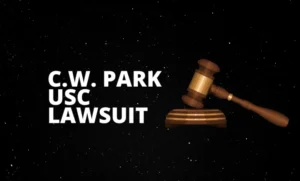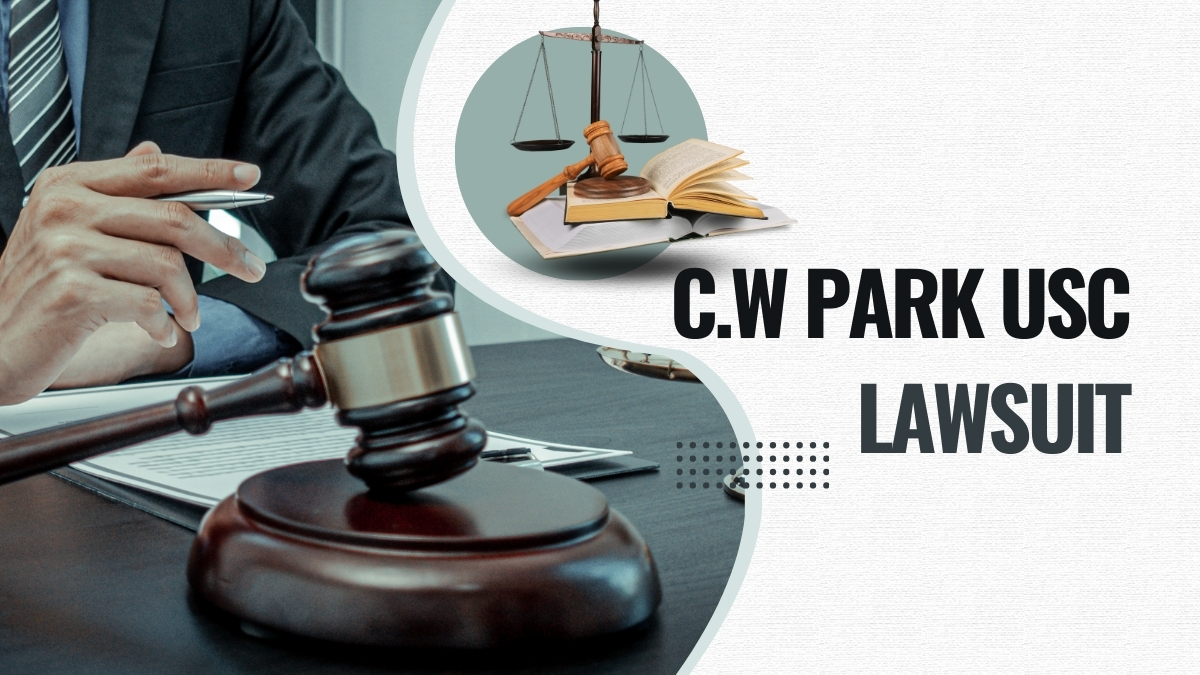In recent years, the landscape of higher education has been marred by controversies and legal battles, with institutions facing scrutiny over various issues ranging from admissions practices to campus culture. One such case that has garnered significant attention is the C.W. Park USC lawsuit. This article delves into the intricate details of the lawsuit, its underlying causes, and the broader implications for both the University of Southern California (C.W. Park USC lawsuit) and the higher education sector as a whole.
Contents
- 1 Background: The Emergence of the c.w. park usc lawsuit
- 2 Allegations and Legal Proceedings
- 3 USC’s Response and Defense
- 4 Broader Implications and Industry Reflections
- 5 Lessons Learned and Path Forward
- 6 The Importance of Institutional Reform
- 7 Strengthening Diversity and Inclusion Initiatives
- 8 Addressing Systemic Challenges
- 9 Implications for Higher Education Policy
- 10 Conclusion
Background: The Emergence of the c.w. park usc lawsuit
The C.W. Park USC lawsuit named after the plaintiff, a former business school professor at USC, surfaced in 2018, shaking the foundations of one of America’s prestigious academic institutions. At the heart of the lawsuit were allegations of racial discrimination, retaliation, and wrongful termination, shedding light on the complex dynamics prevalent within academia.
Allegations and Legal Proceedings
Central to the lawsuit were accusations leveled against USC’s Marshall School of Business, where C.W. Park USC lawsuit had been a tenured professor. Park alleged that he faced systemic discrimination and retaliation based on his race and national origin, citing instances of differential treatment, hostile work environment, and unjust disciplinary actions.
The legal battle unfolded over several years, with Park and his legal team presenting a compelling case against C.W. Park USC lawsuit. Key elements of the lawsuit included testimonies from Park and other witnesses, documentation of discriminatory practices, and analysis of institutional policies and procedures.
USC’s Response and Defense
In response to the lawsuit, C.W. Park USC lawsuit vehemently denied the allegations, asserting its commitment to diversity, equity, and inclusion. The university contended that Park’s termination was based on legitimate performance concerns and disciplinary issues unrelated to his race or ethnicity.
Throughout the legal proceedings, C.W. Park USC lawsuit defended its actions, presenting evidence to rebut Park’s claims and highlighting its efforts to promote a fair and equitable work environment for faculty, staff, and students alike.
Broader Implications and Industry Reflections
The C.W. Park USC lawsuit has sparked widespread debate and introspection within the higher education community, prompting institutions to reevaluate their policies, practices, and cultural norms. It has underscored the importance of fostering inclusive environments where diversity is not only celebrated but actively nurtured.
Moreover, the case has drawn attention to the broader issue of racial discrimination and inequality within academia, shining a spotlight on the challenges faced by minority faculty members and students in predominantly white institutions.
Lessons Learned and Path Forward
As the legal saga unfolds, both C.W. Park USC lawsuit and the wider higher education sector have an opportunity to reflect on lessons learned and chart a path forward towards greater accountability and transparency. Institutions must prioritize diversity, equity, and inclusion initiatives, ensuring that all members of the academic community are treated with dignity, respect, and fairness.
Furthermore, theC.W. Park USC lawsuit serves as a reminder of the importance of upholding academic freedom and protecting the rights of faculty members to express dissenting opinions without fear of reprisal or retaliation.
The Importance of Institutional Reform
 In light of the C.W. Park USC lawsuit, there is a pressing need for institutional reform within USC and other academic institutions facing similar challenges. This includes a comprehensive review of hiring practices, promotion criteria, and mechanisms for addressing grievances to ensure equitable treatment for all faculty members.
In light of the C.W. Park USC lawsuit, there is a pressing need for institutional reform within USC and other academic institutions facing similar challenges. This includes a comprehensive review of hiring practices, promotion criteria, and mechanisms for addressing grievances to ensure equitable treatment for all faculty members.
Furthermore, fostering a culture of open dialogue and constructive engagement is essential in addressing underlying issues of discrimination and bias. Institutions must create avenues for faculty, staff, and students to voice their concerns and participate in decision-making processes that affect their academic and professional lives.
Strengthening Diversity and Inclusion Initiatives
The C.W. Park USC lawsuit underscores the urgency of strengthening diversity and inclusion initiatives within higher education institutions. This involves not only recruiting and retaining a diverse faculty and student body but also creating an environment where individuals from all backgrounds feel valued, supported, and empowered to succeed.
Incorporating diversity training, cultural competency workshops, and anti-bias education into institutional practices can help foster a more inclusive campus climate. Additionally, establishing mentorship programs and support networks for underrepresented groups can provide vital resources and opportunities for professional growth and advancement.
Addressing Systemic Challenges
While the C.W. Park USC lawsuit highlights specific instances of discrimination and retaliation, it also sheds light on broader systemic challenges within academia. These include power imbalances, lack of transparency in decision-making processes, and entrenched biases that perpetuate inequities.
Addressing these systemic challenges requires a multifaceted approach that involves collaboration among stakeholders, including faculty, administrators, students, and community members. By fostering a culture of accountability and collective responsibility, institutions can work towards dismantling barriers to equity and justice within the academic ecosystem.
Implications for Higher Education Policy
The ramifications of the C.W. Park USC lawsuit extend beyond individual institutions to the realm of higher education policy and governance. Policymakers, accrediting bodies, and advocacy organizations play a crucial role in shaping the regulatory framework that governs academic institutions and their conduct.
In response to cases of discrimination and misconduct, policymakers may consider implementing stricter oversight mechanisms, enhancing reporting requirements, and strengthening protections for whistleblowers. Additionally, they may explore legislative reforms aimed at promoting diversity, equity, and inclusion within higher education institutions.
Conclusion
In conclusion, the C.W. Park USC lawsuit represents a pivotal moment in the annals of higher education, highlighting the complexities of academic governance, institutional culture, and social justice. As the legal proceedings continue, it is incumbent upon USC and other institutions to embrace transparency, accountability, and inclusivity as guiding principles in their pursuit of academic excellence.
Ultimately, the outcome of the C.W. Park USC lawsuit will not only shape the future of USC but also reverberate throughout the higher education landscape, prompting much-needed reforms and fostering a culture of respect, equity, and opportunity for all.
Also Read: Crypto FintechZoom
